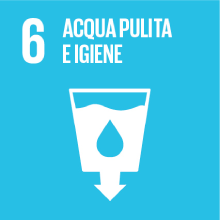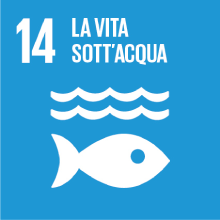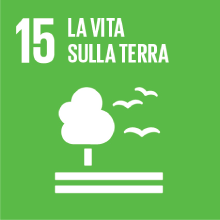GEOSPATIAL AND LANDSCAPE ARCHAEOLOGY
- Anno accademico
- 2021/2022 Programmi anni precedenti
- Titolo corso in inglese
- GEOSPATIAL AND LANDSCAPE ARCHAEOLOGY
- Codice insegnamento
- FM0502 (AF:338880 AR:190888)
- Lingua di insegnamento
- Inglese
- Modalità
- In presenza
- Crediti formativi universitari
- 6
- Livello laurea
- Laurea magistrale (DM270)
- Settore scientifico disciplinare
- L-ANT/09
- Periodo
- 2° Periodo
- Anno corso
- 2
- Sede
- VENEZIA
- Spazio Moodle
- Link allo spazio del corso
Inquadramento dell'insegnamento nel percorso del corso di studio
Landscape archeology studies the ways by which people in the past have (deliberately or involuntarily) shaped the land around them. Humans engage in multiple processes in organizing space or altering the landscape around them for cultural or economic purposes. People often use landscapes in practices that encompass the sense of place, memory, history, legends. Archaeology offers helpful tools for examining such processes: satellite and aerial imagery, remote sensing, ground surface surveys, topographic modeling, stratigraphic excavations, geomorphology assessments, paleoecological analysis. Archaeology uses extensively GIS tools to discuss and present landscape data.
The course will contemplate, also, both the critique of Geographical Information Science in archaeology, and it will also examine how archaeologists may assess ancient people's perceptions and ideas about landscape.
Risultati di apprendimento attesi
• relationships between people and places unfolded in the past, and how they continue to resonate in the present;
• how past and present social relationships and cultural values shape traditional perceptions and current understanding of landscapes;
• the role of landscape archaeology in light of current events surrounding development and heritage.
The student will learn:
• how to re-read landscape archaeological areas using a multidisciplinary perspective;
• how to conceptualize the inter-relationships between environments and settlement
• How to take benefit from the study of the past materiality around the environment to better facing climatic changes;
• How to de-colonize some western perspective on the management of the Cultural Heritage.
Prerequisiti
Contenuti
The second part will be devoted to exploring a few representative test cases, with a particular focus on the GIS technologies employed to re-read, communicate and manage landscape yudies.
1. Introduction. Course Schedule. Theory: The Interpretation of landscapes. Social Landscapes
• Why Landscape Archaeology
• Interpretation of landscapes
• Decision and Disposition: Social theory and landscape archaeology
2. Settlement ecology, ritual landscapes, and ethnic landscapes
• Dialogue between archaeologists and traditional communities
• The spatial dimension of human behaviour, land vs. landscapes, people's perceptions of and attitudes to landscapes, archaeologists' ways of dealing with landscapes
3. Identifying Archaeological landscapes
• Archaeological Survey
• Remote Sensing
4. Landscapes as Habitat
• Ecology;
• Political Ecology;
• Environmental determinism;
5. Landscapes and Settlements
• Site, Sites’ size, Hierarchy.
• The Political Landscape;
• Regional analysis and ddistributions.
6. The meanings of Landscapes
• Ceremonial Landscapes;
• Ritual and space;
• Archaeostronomy.
7. Experiencing the landscape
• The temporality of Landscape;
• Phenomenology and Post-Processual approaches;
8. Roads, Trails, Connections, Movement
• Models for Exchange and Spatial Distribution;
• Archaeology of Movement.
9. Contested landscape and Heritage discourses
• Rights to History, Rights to Place;
• Cultural Resource Management;
• Disappearing Cultural Landscapes
10. Monuments and landscape
• Monumentality;
• The Built Landscape;
• The memory of the monumentality.
11. GIS LAB1, Intro Discussion. GIS organization and output
• Spatial technologies and archaeologies;
• GIS and Archaeology: the aims.
12. GIS LAB2, New data acquisition and input methods
• Data types;
• Data Entry;
• Data mining;
13. GIS, LAB3, Thematic maps, buffers, and overlays
• Data overlay and research;
• Geoprocessing tools;
14. GIS, LAB4, Spatial Analysis I
• Spatial tools;
15. GIS, LAB4, Spatial Analysis II
• Cost surface analysis;
• Viewshed analysis;
Testi di riferimento
- Walsh, Kevin, editor (2013) The Archaeology of Mediterranean Landscapes : Human-Environment Interaction from the Neolithic to the Roman Period. Cambridge Univ. Press;
- David, Bruno and Thomas, Julian, editors (2008) Handbook of Landscape Archaeology. Left Coast Press, Walnut Creek, California.
Other resources/paper will be available in Moodle for each session. Students do not have to purchase the textbook.
All the materials, papers for personal study and the discussion tools will be uploaded in Moodle.
Modalità di verifica dell'apprendimento
- Class Participation (questions/brainstorming activities/online quizzes): (20%)
- Personal class presentation of 1 selected paper: (20%)
- Oral test (Final exam): (60%)
Non attending students will negotiate a specific additional program.
Modalità di esame
Metodi didattici
- Lectures;
- Participant's presentations;
- 1 Seminar, with external guest;
- Online quizzes.
- Video materials.
All the didactic materials will be available in Moodle
Obiettivi Agenda 2030 per lo sviluppo sostenibile
Questo insegnamento tratta argomenti connessi alla macroarea "Capitale naturale e qualità dell'ambiente" e concorre alla realizzazione dei relativi obiettivi ONU dell'Agenda 2030 per lo Sviluppo Sostenibile




